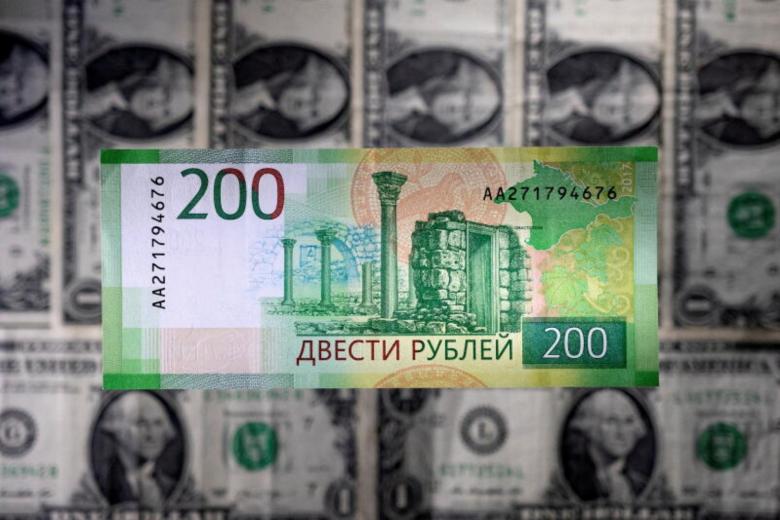US 'likely' to scrap Russia debt payment exemption: Yellen
Sign up now: Get ST's newsletters delivered to your inbox

The Russian government has attempted to pay in domestic currency, but many of the bonds do not allow repayment in roubles.
PHOTO: REUTERS
Follow topic:
BONN, Germany (AFP, REUTERS) - The United States will likely end an exemption allowing Moscow to pay its foreign debts with dollars held in Russia, its Treasury Secretary said on Wednesday (May 18), a move that could push the country into its first external debt default since the 1917 Russian revolution.
"When we first imposed sanctions on Russia, we created an exemption that would allow a period of time for an orderly transition to take place and for investors to be able to sell securities," said Dr Janet Yellen.
"And the expectation was, that it was time limited. So I think it's reasonably likely that the licence will be allowed to expire."
Punishing sanctions imposed following Russia's invasion of Ukraine in late February have largely severed the country from the international financial system, blocking Moscow's ability to access dollars held in US banks to pay its debts.
The Russian government has attempted to pay in domestic currency, but many of the bonds do not allow repayment in roubles.
As a result, President Vladimir Putin's government has had to turn to US dollars held in Russia to meet those payments - an escape clause from default that is due to expire on May 25.
That expiry date is also two days before Russia's next debt service payment is due.
Dr Yellen, speaking to journalists before a Group of Seven (G-7) meeting of finance ministers in Bonn, Germany, said a final decision has not been made, but she thought it is "unlikely" that the exemption would be renewed.
"Russia is not able right now to borrow in global financial markets. It has no access to capital markets. If Russia is unable to find a legal way to make these payments, and then they technically default on their debt, I don't think that really represents a significant change in Russia's situation," she said.
Dr Yellen also said that the US does not have legal authority to seize Russian central bank assets frozen due to its invasion of Ukraine, but talks with US partners over ways to make Russia foot the bill for Ukraine's post-war reconstruction are starting.
Russia's Feb 24 invasion of Ukraine is the central agenda item at this week's G-7 gathering, and Ms Yellen is calling for increased financial support for the war-torn country, which the World Bank estimates is suffering US$4 billion (S$5.6 billion) in weekly physical damage.
"I think it's very natural that given the enormous destruction in Ukraine, and huge rebuilding costs that they will face, that we will look to Russia to help pay at least a portion of the price that will be involved," she told reporters.
Some European officials have advocated that the European Union, the US and other allies seize about US$300 billion in Russian central bank foreign currency assets frozen by sanctions. The assets are held abroad, but remain under Russian ownership.
"While we're beginning to look at this, it would not be legal now in the United States for the government to seize those" assets, Ms Yellen said. "It's not something that is legally permissible in the United States."
US Treasury officials have also expressed concerns about setting precedents and eroding other countries' confidence in holding their central bank assets in the US.

